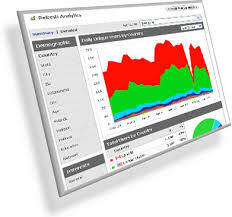 SaaS has considerably reduced B2B software development costs. Think about ten years ago and the products and services you had to buy when starting a B2B software company, and that you can now rent.
SaaS has considerably reduced B2B software development costs. Think about ten years ago and the products and services you had to buy when starting a B2B software company, and that you can now rent.
 SaaS has considerably reduced B2B software development costs. Think about ten years ago and the products and services you had to buy when starting a B2B software company, and that you can now rent. These include productivity suites, servers, telecom networks, software development tools and project management and CRM software. Of course the total lifecycle cost of these services may be higher than their perpetual license equivalent (SaaS wouldn’t exist as an industry otherwise), but given the cash flow profile of a startup, renting vs. buying makes a big difference.
SaaS has considerably reduced B2B software development costs. Think about ten years ago and the products and services you had to buy when starting a B2B software company, and that you can now rent. These include productivity suites, servers, telecom networks, software development tools and project management and CRM software. Of course the total lifecycle cost of these services may be higher than their perpetual license equivalent (SaaS wouldn’t exist as an industry otherwise), but given the cash flow profile of a startup, renting vs. buying makes a big difference.
Sales and marketing boost
Additionally, smaller costs are only the supply-side advantage of SaaS. For B2B software startups, SaaS also entails notable demand-side benefits. These include:
- Smaller MVP (Minimum Viable Product): As your software is multi-tenant and online, you can upgrade it frequently without incurring distribution costs or disrupting your clients. This lets you start smaller and faster, and build up your features as you go.
- Better user feedback: Plugging Google Analytics into your SaaS application gives you precious user feedback to adjust your product roadmap. Once you have enough users you can also A/B test your features.
- Faster scaling: Your software is online which gives you instant access to international markets and increases your chances of reaching scale. Even if you are addressing a small market, creating logins and passwords will always be cheaper than shipping boxes.
- Streamlined sales process: The SaaS sales and marketing process (inbound marketing > online demo > trial period > subscription) considerably reduces sales and marketing expenses and lets you focus on what really matters (i.e. positioning, messaging, onboarding).
So is SaaS heaven on earth for B2B software startups? Unfortunately not.
One obvious drawback of SaaS is its difficult economics during the first phases of a company’s lifecycle. Since this is well documented (read this article for metrics and watch this video for a case study), I won’t expand on it.
Platform orphans
Another, less apparent downside of the new paradigm is the disappearance of the once ubiquitous Windows platform.
It may not be an issue if every SaaS application was autonomous, but that is not the case. Irrelevant of your market segment, your clients and customers will always want to centralize some back-office functionalities, like contact management. They will also want their front-office applications to share information. For example an invoicing application that did not synchronize with accounting applications would be useless. As an online application provider you will want to use as many standard building blocks as possible (like single sign-on or user management), instead of constantly reinventing the wheel.
So Windows may be gone, but the need for a good a platform to support your B2B application remains. And while a few SaaS platforms have emerged, none is as dominant as Windows from 1995 to 2005. Which one should you choose? Let us review the possibilities.
Leaders
- Salesforce: In B2B, Salesforce is unquestionably the leading cloud platform. Salesforce’s API is sophisticated, the vetting process for ISV partners is rigorous, the AppExchange is well organized and clearly at the heart of Salesforce’s strategy… Integrating with Salesforce is a strong commitment but, if your application relates to sales and marketing in any way, quite unavoidable.
- Google Apps: Google offers a comprehensive API and a marketplace with thousands of applications. Compared to the AppExchange’s well-groomed garden, the Google Apps Marketplace is a jungle. However, it is interesting, especially since with Google+ a major part of the Google Apps package, it may be easier to “socialize” a B2B application with Google Apps than with Facebook.
Contenders
- Microsoft Dynamics: Can the Mother of All Platforms resuscitate in the cloud? Dynamics does have a nice marketplace (if a bit messy). Its initial development was hampered by typical Microsoft cross-selling requirements (like using Silverlight in your application), but these have disappeared. And Microsoft is apparently very supportive of its cloud partners. So definitely worth a check.
- 37signals: The Chicago gurus are best known for their project management application Basecamp and their small business CRM Highrise, but they are also running a nice little platform, with a no-thrills API and a lively marketplace, it can be quite effective.
- SAP ByDesign: SAP does have a cloud marketplace! Offering 27 applications. You never know, it may take off. I am hearing that SAP is quite proactive in selling your application if you have chosen their platform. I’ve also heard that SAP is quite fast in crushing your application if you are treading too close to their core business. My own experience of their cloud partner program is limited, but unambiguous – they don’t answer the phone.
- Oracle: Oracle will officially launch its application marketplace during Oracle World in September. Let’s see how that ecosystem develops.
Pretenders
- Front office applications: A number of successful front office applications have conformed to Silicon Valley dogma and, in a move that no doubt had their VCs fluttering, launched their own marketplaces. Examples would include HubSpot, Zendesk and Marketo. I doubt the rationale of building an application (your own) sitting on top of an application (e.g. HubSpot) sitting on top of a platform (e.g. Salesforce). I would rather integrate with the platform directly, and then connect with complementary applications “horizontally”, but others may see it differently.
- Small business CRMs: Some small business CRMs are trying to play the platform game (e.g. Zoho, Nimble). I have argued in a blog article on the sales and marketing cycle that most small business CRMs will be wiped out when Google takes the basic step of adding an “Opportunity” object to Google Apps. So their platform strategy is a safety net. Is their ecosystem big enough to feed you? Hard to tell.
B2B2C platforms
- Facebook: With its huge user base and built-in network effects, Facebook can be a tremendous platform if your application is B2B2C. For pure B2B applications, I find the platform hard to leverage. Social is not a universal condiment – adding it to your application without a genuine business rationale will feel contrived and won’t increase your traction. Better to own your B2B strategy and focus on adding value where it counts.
- LinkedIn: LinkedIn has great potential as a platform – some analysts are even arguing that most business workflows will eventually be managed within LinkedIn, since this is where your contacts are. But the LinkedIn API is limited and the partner program quite poor. Given the platform fetish of the Silicon Valley, that is surprising.









